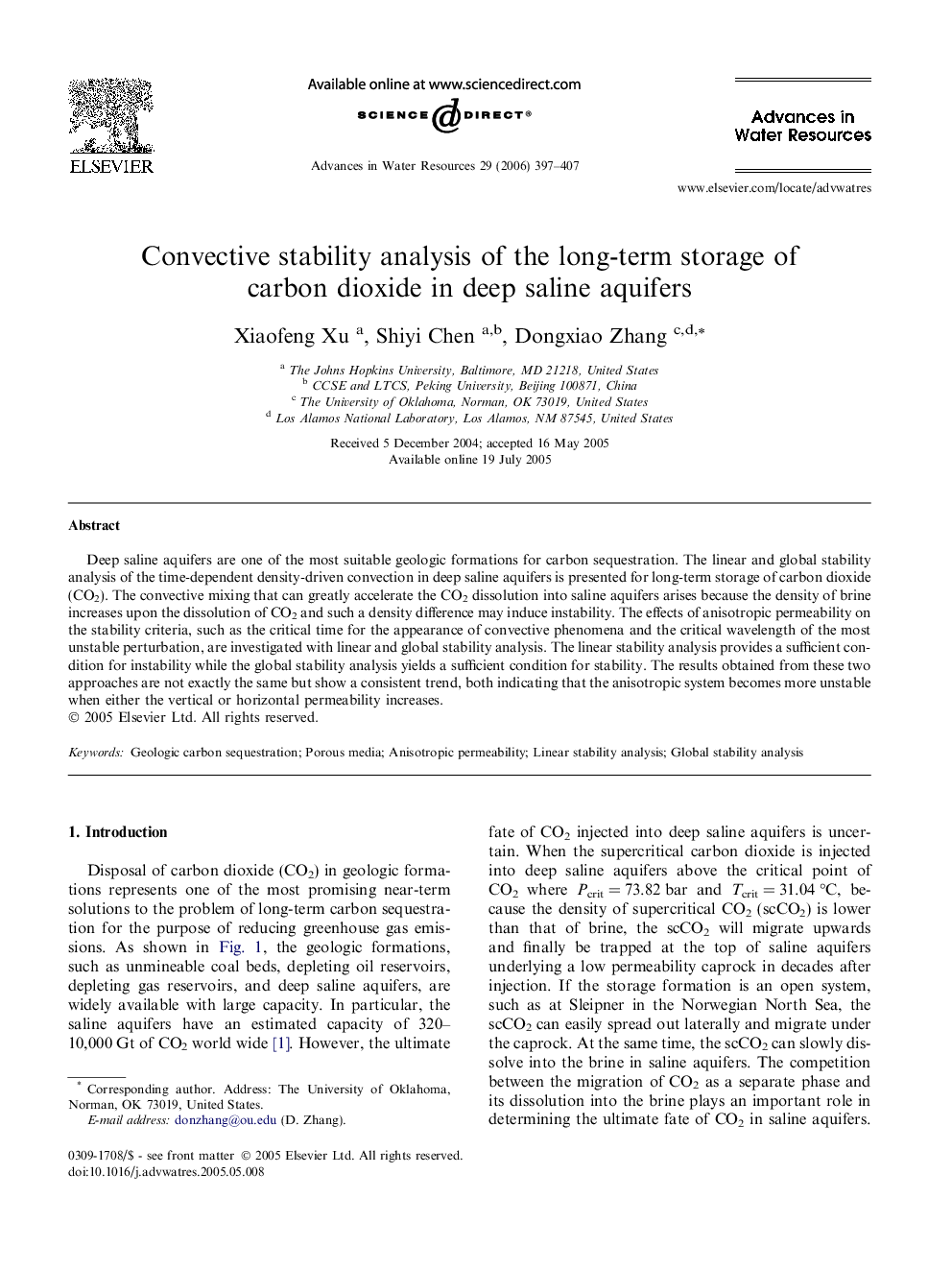| Article ID | Journal | Published Year | Pages | File Type |
|---|---|---|---|---|
| 4527105 | Advances in Water Resources | 2006 | 11 Pages |
Deep saline aquifers are one of the most suitable geologic formations for carbon sequestration. The linear and global stability analysis of the time-dependent density-driven convection in deep saline aquifers is presented for long-term storage of carbon dioxide (CO2). The convective mixing that can greatly accelerate the CO2 dissolution into saline aquifers arises because the density of brine increases upon the dissolution of CO2 and such a density difference may induce instability. The effects of anisotropic permeability on the stability criteria, such as the critical time for the appearance of convective phenomena and the critical wavelength of the most unstable perturbation, are investigated with linear and global stability analysis. The linear stability analysis provides a sufficient condition for instability while the global stability analysis yields a sufficient condition for stability. The results obtained from these two approaches are not exactly the same but show a consistent trend, both indicating that the anisotropic system becomes more unstable when either the vertical or horizontal permeability increases.
